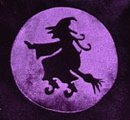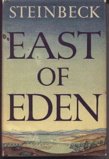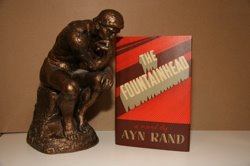So this evening I had a look at the book, in the store.
 I just love the look and the feel of this newest edition, published by Scribners. And even the typeface, I mean the actual print, the font that is used… I love it. And the paper itself. And the smell. Scribners can really make a nice book. OK, I am saying all of this preamble to just mention that I am now really interested in reading the thing.
I just love the look and the feel of this newest edition, published by Scribners. And even the typeface, I mean the actual print, the font that is used… I love it. And the paper itself. And the smell. Scribners can really make a nice book. OK, I am saying all of this preamble to just mention that I am now really interested in reading the thing.She does this to me all the time. Mentions a book and then I go mental.
I can’t believe I left the book at the store and did not buy it [yet].
Thing is, I have STACKS of new books all over my apartment that I have yet to get to!
In fact, some of the stacks have littler stacks stacked on top of them. I’ve been wanting to re-read the gargantuan Nicholas and Alexandra by Robert K. Massie. You know, the book about the last tsars? The fall of the Russian monarchy? Rasputin and all that jazz? But she complains that the book is too much like the SIZE of Russia.
So… Massie or Kazantzakis. Who will win the day?
Yes, you know it as well as I do. → Jesus will win.
All of this anticipatory speculation about reading The Last Temptation of Christ reminds me of a fabulously good novel called The Gospel According To Jesus Christ. Written by none other than my favorite living author, Jose Saramago.

Saramago makes me wish I could read Portuguese!
This book remains as one of my all-time favorite Saramagian works!
For die-hard Christian biblical literalists the story will come down hard, like a spike in the foot, for sure. At times it seems downright blasphemous, mostly because it presents fictionalized aspects of Christ’s life that are not typically mentioned, thought about, or spoken about. [Much like Kazantzakis’s book, I would assume]. It is certainly not the flannel-board Jesus of Sunday School days. Not the man who sat on rocks all day gently sermonizing while little kids climbed all over him.
But the fact must (I think) be acknowledged that much of Jesus's earthly life is in the realm of obscurantism, biblically and otherwise. There is much about him that we do not KNOW! Theologically speaking, Saramago definitely presents and elaborates upon what is known as a "Christology from below" (that which emphasizes the humanity, the human nature of Christ) as opposed to a "Christology from above" (that which would emphasize the divinity of Christ).
Saramago's Jesus BECOMES the Christ.
It is significant that in the novel, nowhere is he called Christ, except in the title of the book.
It just makes you realize the legendary aspect of Jesus. I mean... Joseph and Mary's last name, in the telephone directory, was not Christ.
It is a profound and engaging exploration of the self-realization of Jesus of Nazareth. Not meant to be a comparative text to the Bible, nor meant to replace the Bible. An account, written by one who is definitely familiar with the Bible, yet does not subscribe to a personal faith in its tenets. Saramago is avowedly atheist.
Some Christian readers would be summarily offended by this book. Others, like myself, (a sort of pseudo-lapsed neo-hybrid exiled/agnostified Christian) would not.
I found it positively invigorating. If Kazantzakis’s book is half this good, it will be good indeed.
Reading Saramago is a stretch, yes. But all proper exercise begins with a few stretches.
And speaking of exercise, I think I will go and rearrange a few of my stacks of stacks.
→ Memories of The Saramago Fiasco!
*************

















